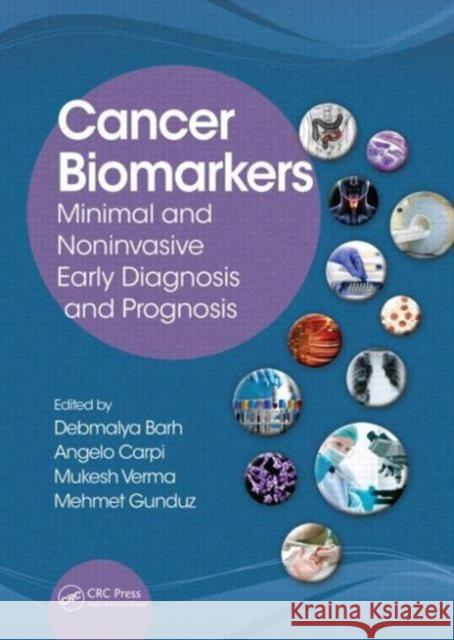Cancer Biomarkers: Minimal and Noninvasive Early Diagnosis and Prognosis » książka
Cancer Biomarkers: Minimal and Noninvasive Early Diagnosis and Prognosis
ISBN-13: 9781466584280 / Angielski / Twarda / 2014 / 951 str.
Cancer Biomarkers: Minimal and Noninvasive Early Diagnosis and Prognosis
ISBN-13: 9781466584280 / Angielski / Twarda / 2014 / 951 str.
(netto: 1282,74 VAT: 5%)
Najniższa cena z 30 dni: 1208,97
ok. 22 dni roboczych.
Darmowa dostawa!
Gleaning information from more than 100 experts in the field of cancer diagnosis, prognosis, and therapy worldwide, Cancer Biomarkers: Non-Invasive Early Diagnosis and Prognosis determines the significance of clinical validation approaches for several markers. This book examines the use of noninvasive or minimally invasive molecular cancer markers that are under development or currently in use. It deals with a majority of commonly prevalent cancers and can help anyone working in the health-care industry to recommend or develop early diagnostics, at-risk tests, and prognostic biomarkers for various cancers. It explores the practice of determining biomarkers by their characteristics and relative methodologies, and presents the most recent data as well as a number of current and upcoming early diagnostic noninvasive molecular markers for many common cancers. It also considers the sensitivity and specificity of markers, biomarker market, test providers, and patent information. Approximately 30-35 Cancer Specific Noninvasive Molecular Diagnostic Markers in a Single Volume The book details the general and technical aspects of noninvasive cancer markers. It covers imaging, cutting-edge molecular technologies for biomarker development, and noninvasive or minimally invasive sources of molecular markers, as well as quality control and ethical issues in cancer biomarker discovery. It also provides a detailed account of brain, head and neck, and oral cancer markers, and provides information on a number of gastrointestinal cancers, lung cancer, and mesothelioma markers. Emphasizes the Importance of Volatile Markers in Early Cancer Diagnosis Presents noninvasive early molecular markers in urological cancers Describes gynecological and endocrine cancer markers Details noninvasive markers of breast, ovarian, cervical, and thyroid cancers Addresses hematological malignancies Contains information on noninvasive molecular markers in myelodys











